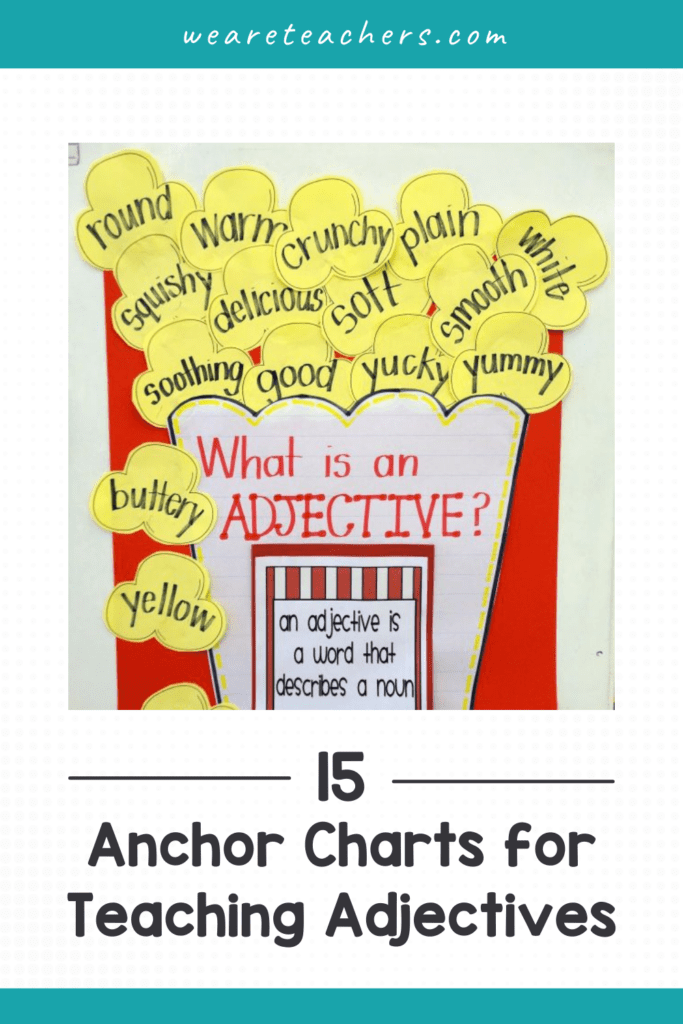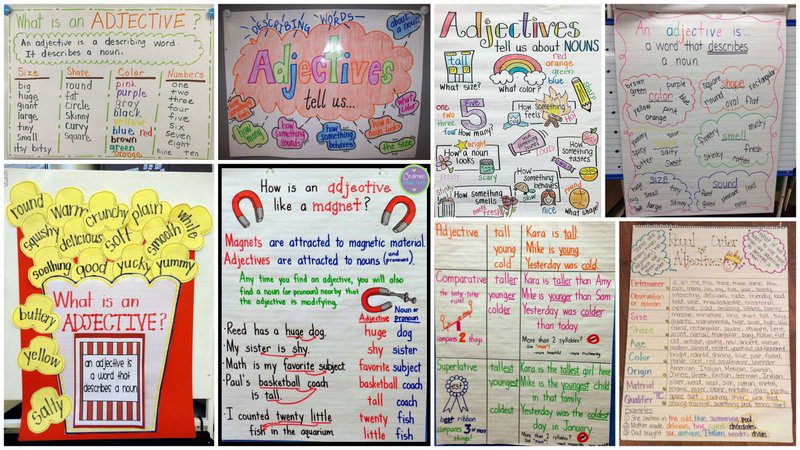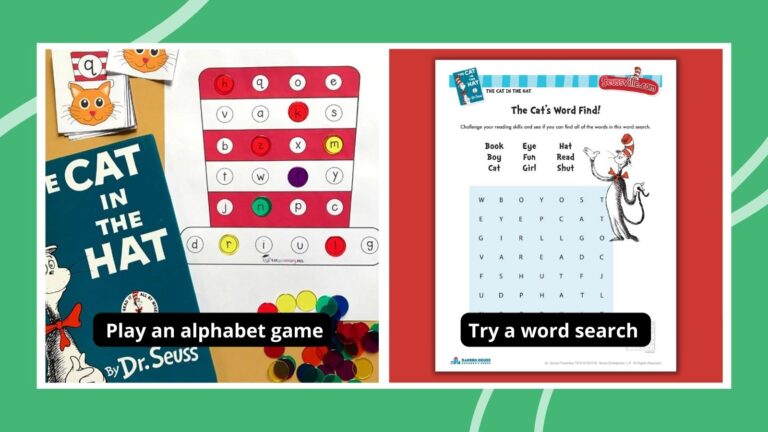Adjectives are so much fun to teach! Learning all the fun new ways to describe nouns brings out the creative side in kids. These adjectives anchor charts help them learn what this part of speech is and how to use it properly. They’re engaging, enlightening, and entertaining!
1. Popcorn Adjectives
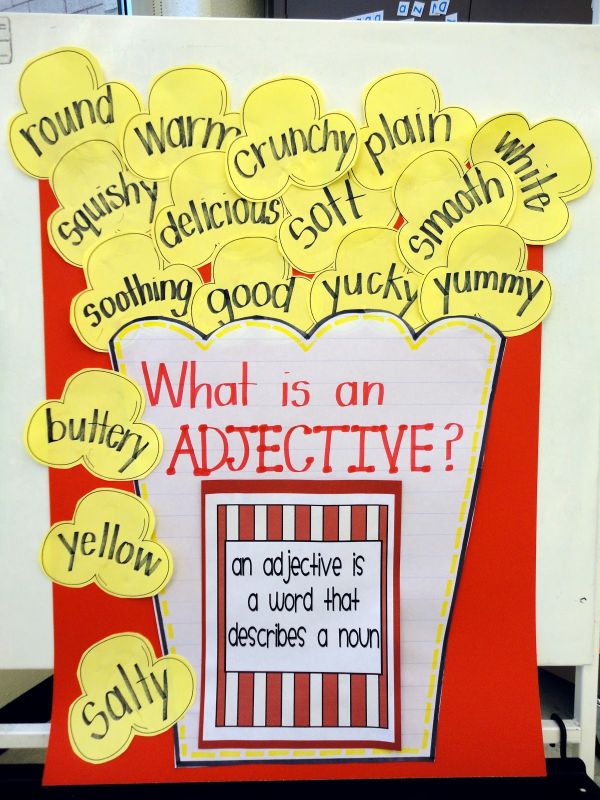
A popcorn lesson is a really cool way to introduce adjectives to young learners. Pop them a tasty snack and ask them to describe it, making notes as you go.
Source: Babbling Abby
2. Adjectives Tell Us…

This is one of those simple, colorful adjectives anchor charts that provides a good reference for kids as they’re reading and writing.
Source: Teaching With Terhune
3. What Is An Adjective?
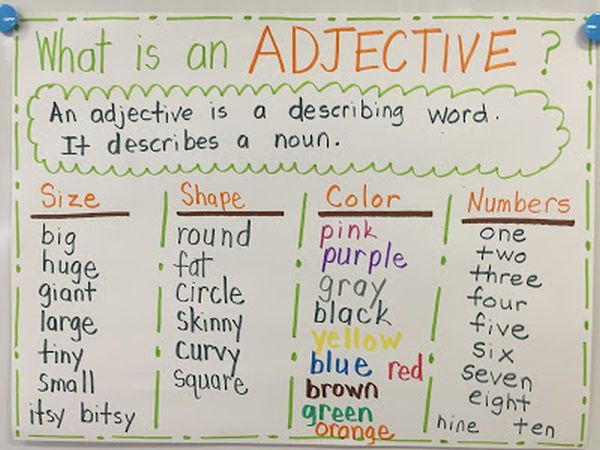
Adjective anchor charts can be as simple as lists of words. This one breaks them down by type.
Source: Firstieland
[contextly_auto_sidebar]
4. A Word That Describes a Noun
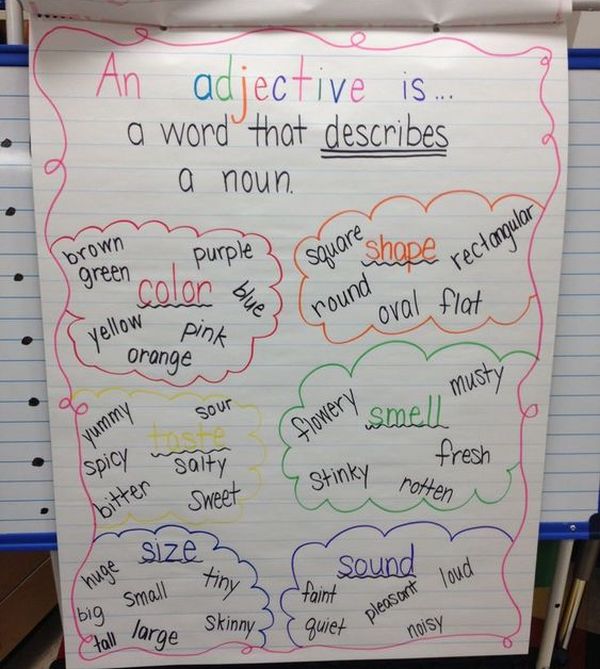
Relate adjectives to the five senses with a chart like this one. Have students help you come up with the examples for each category.
Source: Word That Describes a Noun, Margaux Langenhoven/Pinterest
5. Adjectives Tell Us About Nouns
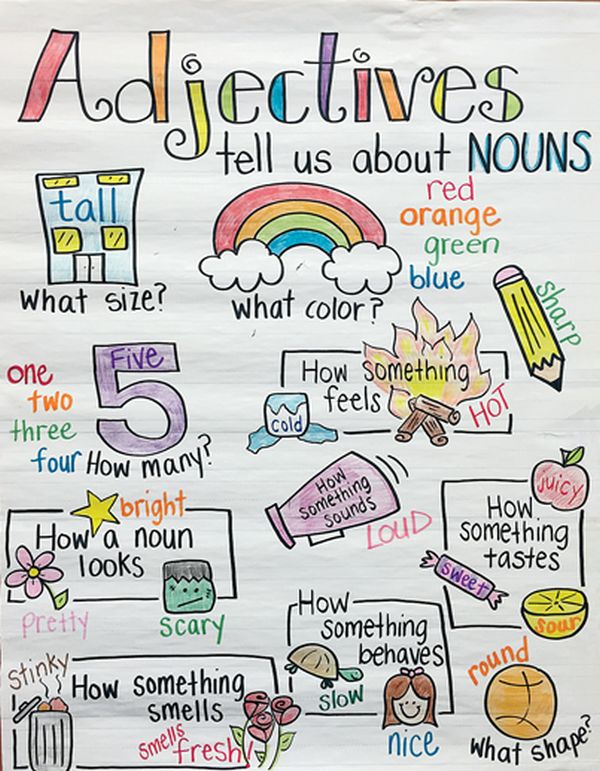
The illustrations on this chart are sure to draw kids’ eyes. You’ll love having this one hanging on your wall!
Source: A Cupcake For The Teacher
6. Adjectives Describe a Person, Place, or Thing
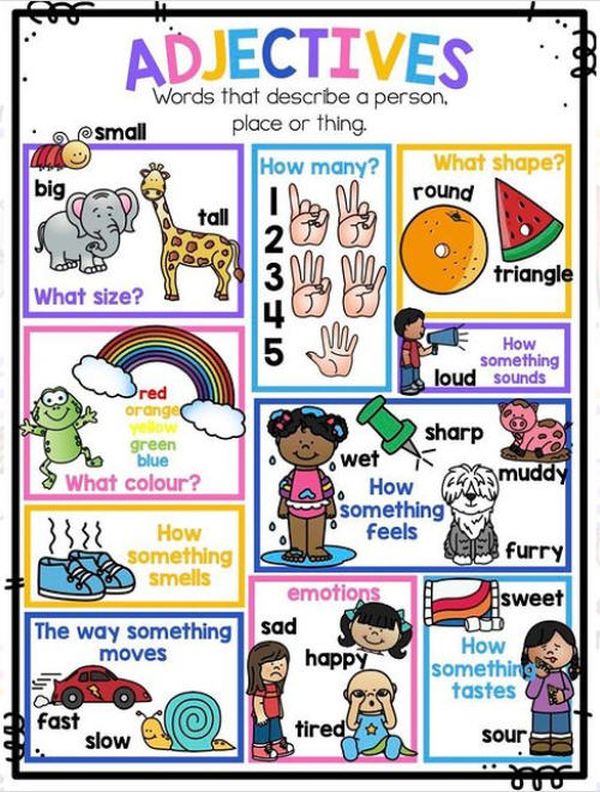
Not much of an artist? Use clipart to illustrate your adjectives anchor charts or buy this ready-to-use image at the link.
Source: @teachwithmeinprepg
7. Adjectives Flower
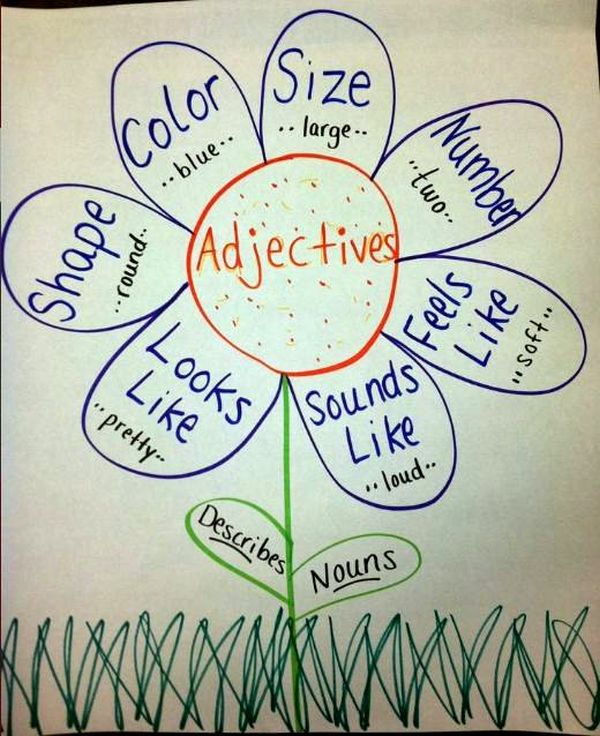
Anyone can draw this simple flower! Use the petals to list types of adjectives and examples.
Source: Lauren Piper
8. What Adjectives Do
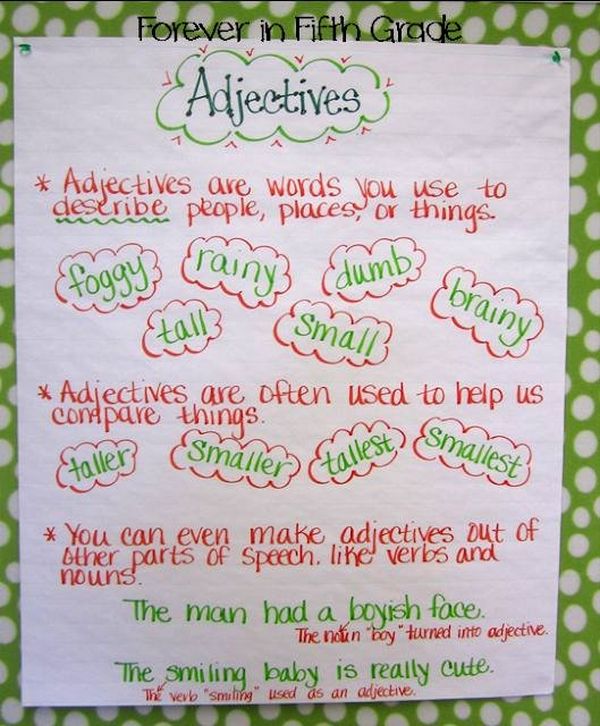
This chart expands on the definition of an adjective as something that describes a noun. It includes the idea of comparative words and the way other parts of speech can be turned into adjectives.
Source: Forever in Fifth Grade
9. Adjectives Add Color
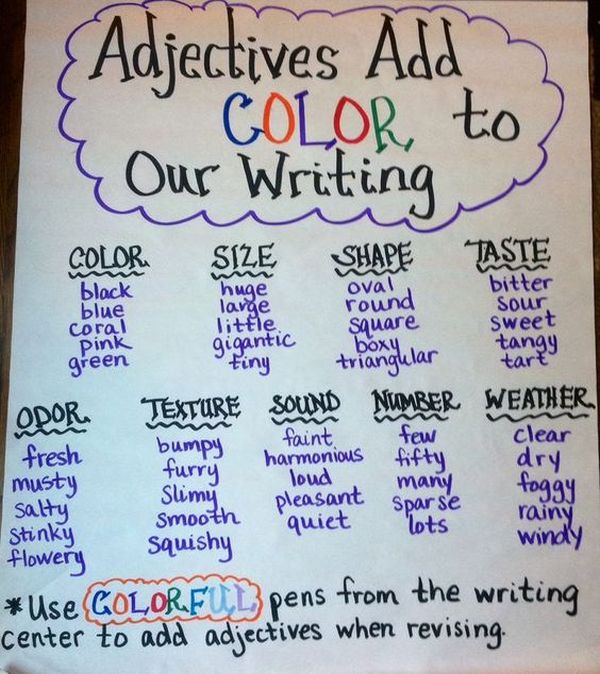
Encourage kids to recognize the adjectives in their writing by underlining them or writing them with colorful pens. As they revise and edit, this will help them see where they might add more descriptive language.
Source: Adjectives Add Color, Margaux Langenhoven/Pinterest
10. Adjectives are Like Magnets
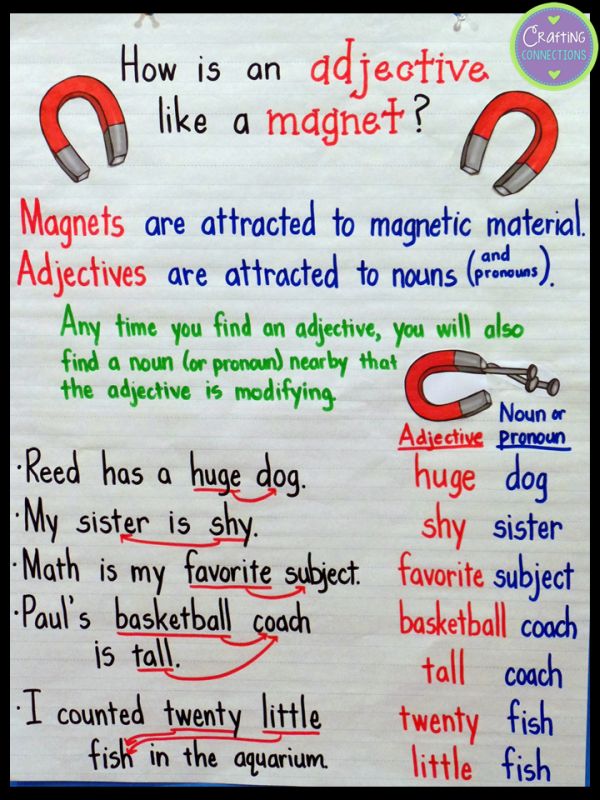
Nouns and adjectives go together like peanut butter and jelly! To be sure you’ve found an adjective, look around for the noun it describes.
Source: Upper Elementary Snapshots
11. Royal Order of Adjectives
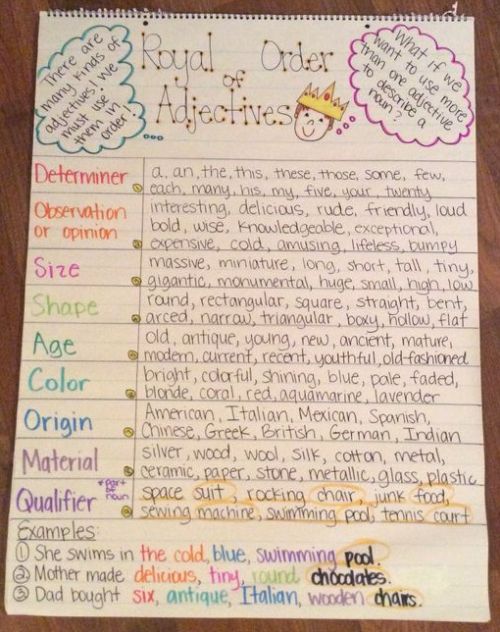
This is one of those seemingly-tricky language skills that we tend to pick up naturally as we learn to talk. Kids just learning to write, or those studying English as a second language, will find this chart helpful.
Source: Laurin Stanford/Pinterest
12. Adjective Order With Sticky Notes
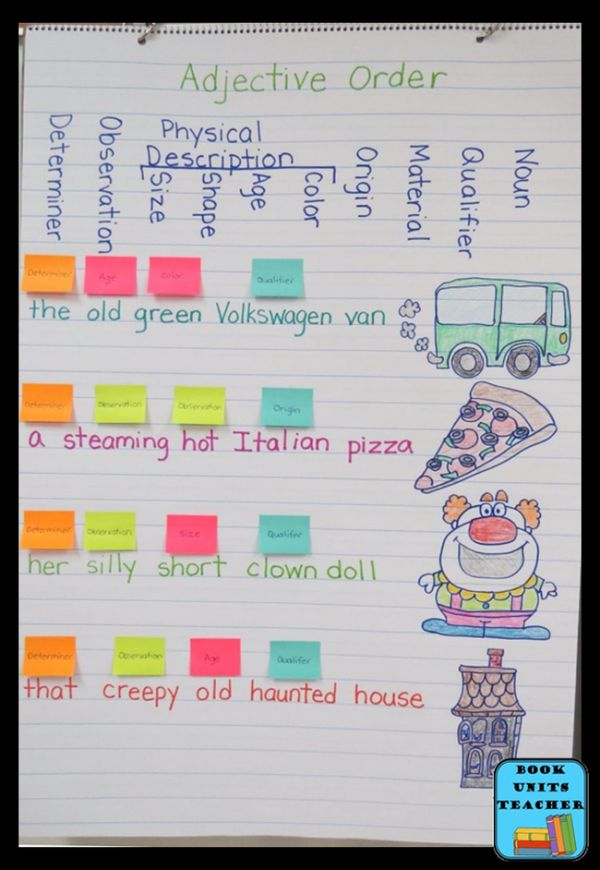
This chart expands on the royal order concept by using sticky notes to categorize the adjectives in each sentence, ensuring they’re in the proper order.
Source: Book Units Teacher
13. Comparative vs. Superlative
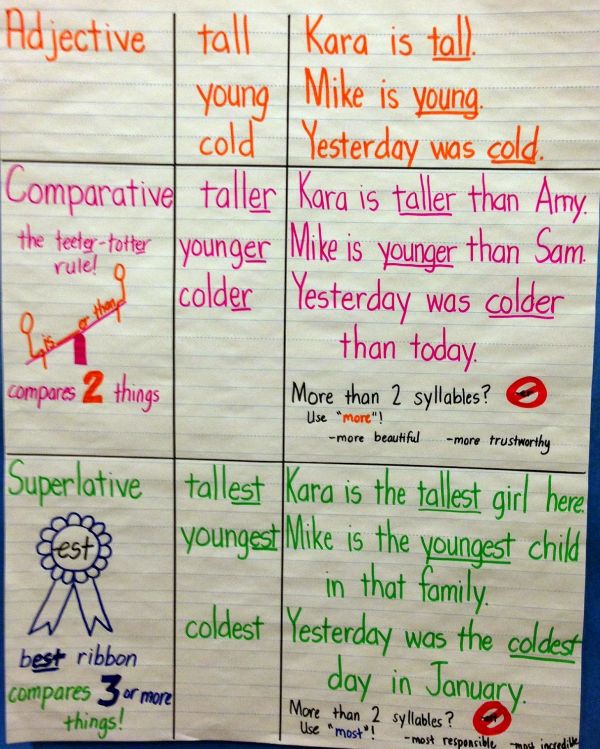
Comparative adjectives often include an -er ending, while superlatives generally end in -est. The “teeter-totter” rule reminds students of the comparative endings, while the “best” ribbon indicates superlatives.
Source: Crafting Connections
14. Comparative vs. Superlative With Sticky Notes
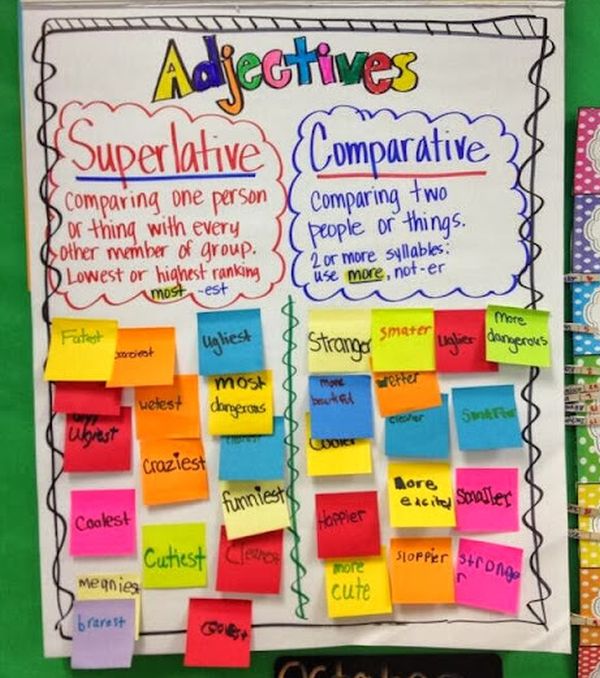
This chart explores comparatives and superlatives, with lots of space for students to add their own examples on sticky notes.
Source: Teaching With a Cup of Tea
15. From Adjective to Adverb
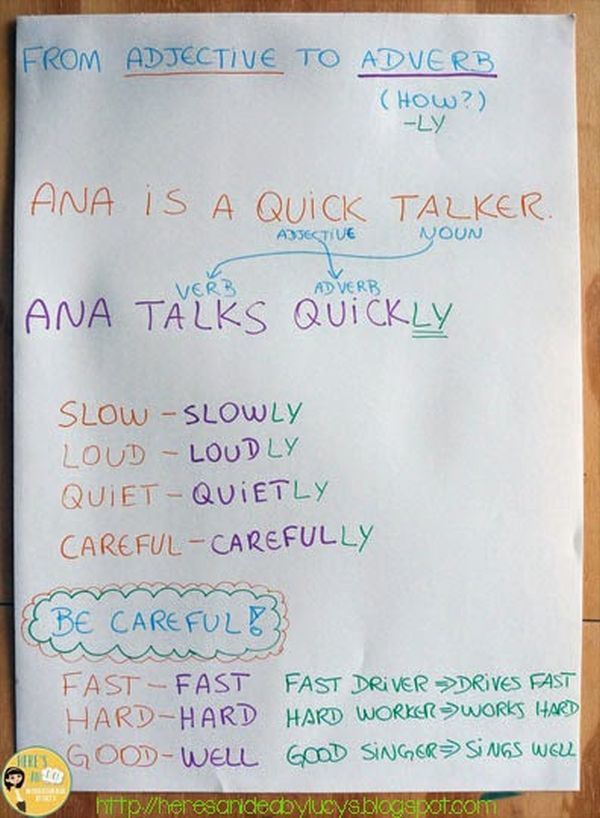
Learning to tell the difference between adjectives and adverbs? This chart can be helpful since sometimes a word can be either depending on how it’s used.
Source: Here’s An Idea
Looking for more ideas? Check out these 40 must-have anchor charts for teaching writing of all kinds.
Plus, get all the latest teaching tips and ideas when you sign up for our free newsletters!
